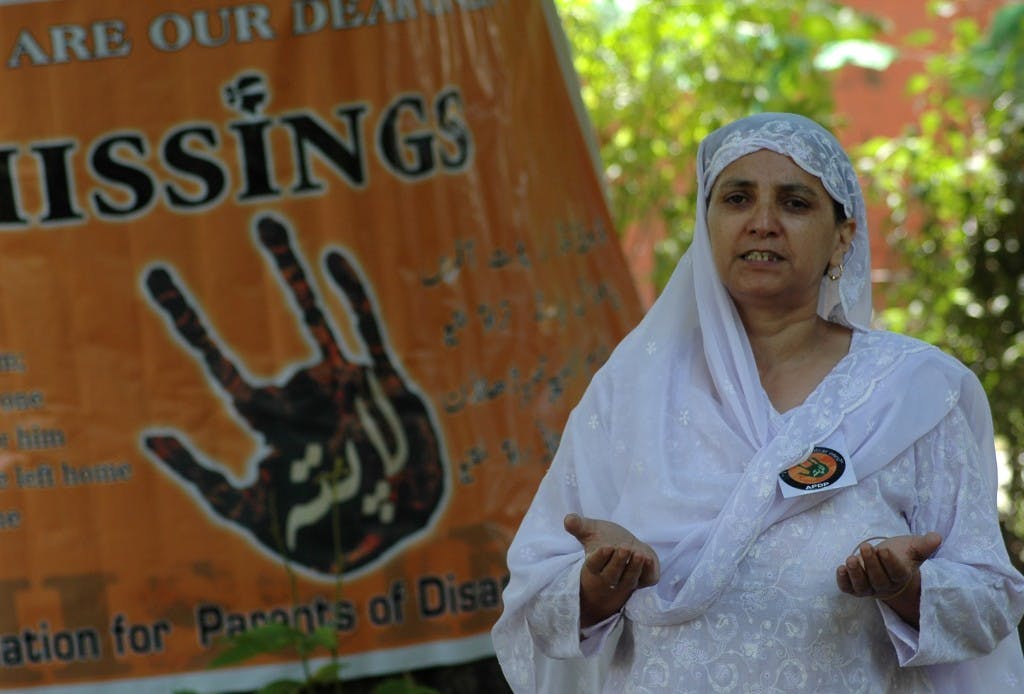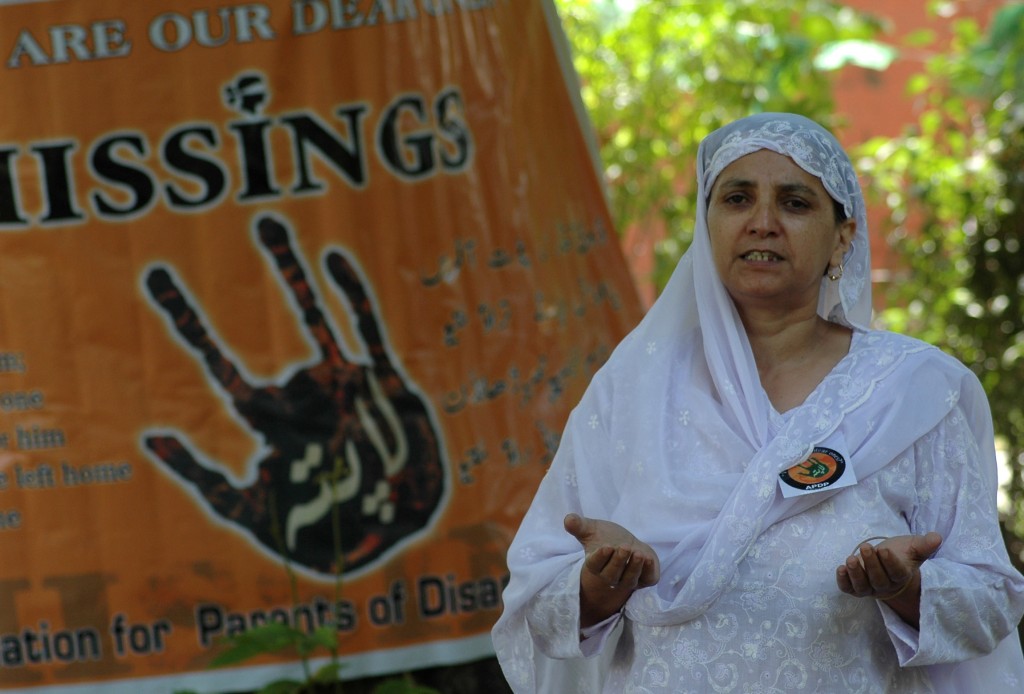KASHMIR'S MOTHER OF DISAPPEARED
Jan 21, 2015
Story


As night falls Parveena grows restless. She is missing her son. She thinks of the clothes (a shirt and a pant) last worn by her son nestled between her clothes in the cupboard. She thinks of the night someone rushed to tell her that her son sleeping at his uncle’s place was picked up in his undergarments by Indian troops. That was 19 years ago and Parveena Ahangar is still waiting for her son to surface.
This stocky mother of five is among thousands of families of Indian administered Kashmir whose members are missing in the two decades of the armed conflict.
What set her apart is her struggle and drive to turn her personal tragedy into a fight for the whole lot. “It is no longer the fight for my son. It is fight for all the disappeared. They are all my sons,” says Parveena, the Chairperson of the Association of Parents of the Disappeared Kashmir (APDP).
She founded the APDP in 1994, by bringing together parents like her.
Divided between Indian and Pakistan, Kashmir is claimed in full by both countries. An armed Muslim insurgency broke out in Indian administered Kashmir in 1989, enjoying popular support. Kashmir separatists demand independence (from India) or merger with Pakistan.
Unofficial estimates say 80000 people have died in two decades of armed conflict, as Kashmir became one of the highest militarized region in peace times. Human rights activists put the figure of disappeared at 10,000. Most of the disappeared were picked up by security agencies and never accounted for.
Parveena calls her pain a malady with no cure. The relatives of people killed, Parveena says, at least had a last glimpse of their children, and graves to pour out their grief. Family of inmates know the jail their kin are in. But the kin of the disappeared have nowhere to go. Not even a graveyard.
Parveena’s determination turned her from a semi literate homemaker to an international activist for the parents of missing children. She represents APDP at Philippines based Asian Federation Against Involuntary Disappearances (AFAD) and has travelled across continents to attend seminars, conferences, workshops highlighting their plight.
Media savvy Parveena says the world needs to know what is happening in Kashmir. Even in India, she says, people are unaware of the situation in Kashmir let alone the issue of disappeared people.
Travelling to other countries and meeting mothers like her has given Parveena courage. “We are not alone and it feels good when people listen to you. At such meetings we share our stories, our grief and give each other courage. It helps us to fight on”.
In Philippines Parveena saw a statue erected in a church in the memory of the missing. On her return the APDP tried to set up a memorial in Srinagar, near the region’s main martyr’s graveyard in Iddgah.
It would have been a simple marble plaque with the names and details of the disappeared. Police overnight demolished the foundation stone with names of three children born after their fathers went missing. Parveena and an associate were charged of trespassing.
“There is no place where people like me can go to unburden our grief when we are missing our children”
Parveena’s son Javed Ahmad Ahnager was her second child. On that fateful night in 1990 Javed was sleeping at his uncle’s place a few houses away. In the precarious situation of the nineties in Kashmir Javed felt safer at his uncle’s house. Ironically, it was there he was picked from. That night, when Parveena received the news, she panicked but had no idea of the long struggle ahead of her. She thought he would be released in a day or two.
“He was a student and had no links with militants so I had no reason to think otherwise”.
The next morning Parveena visited an army camp, which had picked up his son. “It was a case of mistaken identity. They were looking for a neighbour Javeed Bhat who had militant links.”
Over the next months which later extended into years Parveena visited almost every camp in the state searching for her son. At times she would hear of some unidentified youth in a jail and rush to check. Her search took her to jail barbers and other people who had access to camp and prisons.
“They would say, there is a boy in this jail, he stammers, and his parents have not come to him. I would go and check.”
Parveena took a legal course too. She filed a case in the Jammu and Kashmir High Court seeking her son’s whereabouts.
“I knew who had taken my child. I took them to court but the judge was helpless. It took them 13 years to identify the guilty and then the case was sent to the Central government (Indian home ministry) for sanction to prosecute the guilty. The sanction never came.”
A special law called Armed Forces Special Powers Act (APSPA) grants immunity to Indian armed forced fighting in Kashmir. Any requests to Indian home ministry for criminal prosecution of accused army men are mostly rejected.
“If a civilian commits a crime he is punished. Why can’t an army man be punished? How come they are above the law?” said Parveena.
Like Parveena most of parents of disappeared people were fighting their battles separately. Their voices were lost in the din of conflict. They faced harassment from security agencies.
Parveena went door-to-door assembling parents like her to put up a joint front. The APDP was born. They began to protest together, make their shrill voices loud. While the government did not succumb to their demands, the impact was still there.
“Return our children if they are alive, if they are dead give us the bodies,” the APDP members say in unison as they sit in protest in a Srinagar park every month reminding the state of its demand.
This article is part of a writing assignment for Voices of Our Future, which is providing rigorous web 2.0 and new media training for 31 emerging women leaders. We are speaking out for social change from some of the most forgotten corners of the world. Meet Us.




